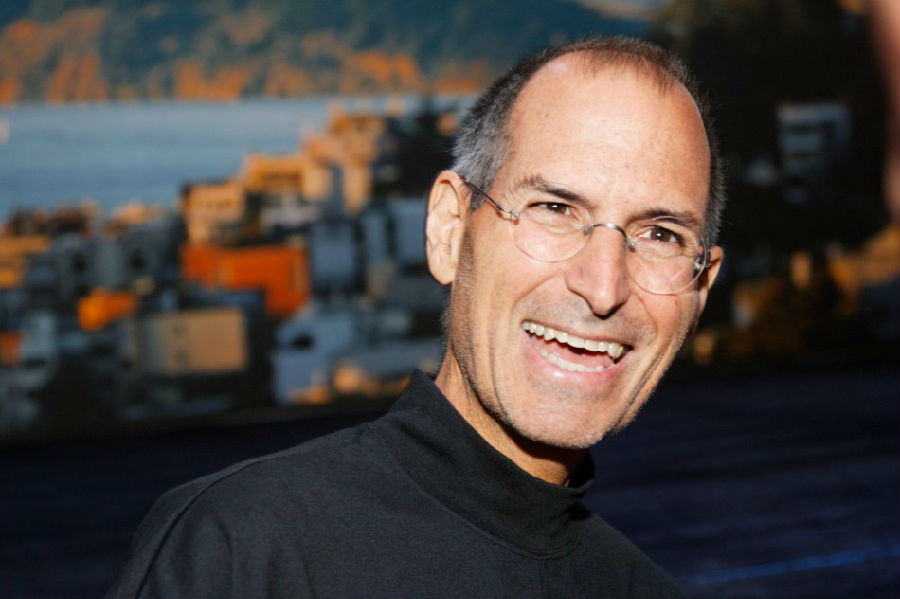Matters came to a head when Jobs visited New York in March 1983
喬布斯于1983年3月訪問了紐約,
and was able to convert the courtship into a blind and blinding romance.
向斯卡利發(fā)起了猛烈的攻勢,事情的發(fā)展到了關(guān)鍵時(shí)刻。
"I really think you're the guy," Jobs said as they walked through Central Park.
“我真的覺得你很適合,”喬布斯在和斯卡利散步穿過中央公園的時(shí)候說,
"I want you to come and work with me. I can learn so much from you."
“我希望你來和我一起工作。我能在你身上學(xué)到很多東西。”
Jobs, who had cultivated father figures in the past,
喬布斯曾結(jié)識(shí)過一些忘年交,
knew just how to play to Sculley's ego and insecurities. It worked.
知道怎樣利用斯卡利的自負(fù)和不安全感。他的話奏效了。
"I was smitten by him," Sculley later admitted.
“我被他征服了,”斯卡利后來說,
"Steve was one of the brightest people I'd ever met. I shared with him a passion for ideas."
“史蒂夫是我所認(rèn)識(shí)的最聰明的人之一。對于創(chuàng)新,我們都富有激情。”

Sculley, who was interested in art history,
斯卡利對藝術(shù)史很感興趣,
steered them toward the Metropolitan Museum for a little test of whether Jobs was really willing to learn from others.
于是他帶喬布斯走向大都會(huì)博物館,他想試試喬布斯,看他是否真的愿意向別人學(xué)習(xí)。
"I wanted to see how well he could take coaching in a subject where he had no background," he recalled.
“我想看看他在自己沒有涉獵過的領(lǐng)域里學(xué)習(xí)能力怎么樣。”斯卡利回憶說。
As they strolled through the Greek and Roman antiquities,
他們漫步在希臘和羅馬古跡之間,
Sculley expounded on the difference between the Archaic sculpture of the sixth century B.C. and the Periclean sculptures a century later.
斯卡利詳細(xì)解釋著公元前6世紀(jì)的早期雕塑和一個(gè)世紀(jì)后的伯里克利時(shí)代的雕塑有什么區(qū)別。
Jobs, who loved to pick up historical nuggets he never learned in college, seemed to soak it in.
喬布斯喜歡學(xué)習(xí)在大學(xué)從未學(xué)過的這些歷史典故,因此他似乎沉浸其中了。
"I gained a sense that I could be a teacher to a brilliant student," Sculley recalled.
“我感覺自己真的像個(gè)老師,在教一個(gè)聰穎的學(xué)生。”斯卡利回憶說。
Once again he indulged the conceit that they were alike:
斯卡利又一次沉溺在幻想里,他認(rèn)為他們倆很相像。
"I saw in him a mirror image of my younger self. I, too, was impatient, stubborn, arrogant, impetuous.
“我在他身上看到了自己年輕時(shí)候的影子。我那時(shí)也沒有耐心,固執(zhí)、傲慢、沖動(dòng)。
My mind exploded with ideas, often to the exclusion of everything else.
我的腦子里總是充滿了新鮮的想法,裝不下任何其他的事情。
I, too, was intolerant of those who couldn't live up to my demands."
我也不能容忍那些做事達(dá)不到我要求的人。”
As they continued their long walk,
他們繼續(xù)著這次長時(shí)間的漫步。
Sculley confided that on vacations he went to the Left Bank in Paris to draw in his sketchbook;
斯卡利透露說,他度假的時(shí)候,會(huì)帶著自己的寫生簿去巴黎左岸繪畫;
if he hadn't become a businessman, he would be an artist.
如果沒做生意人的話,他會(huì)成為一名藝術(shù)家。
Jobs replied that if he weren't working with computers, he could see himself as a poet in Paris.
喬布斯回答說,如果他不和計(jì)算機(jī)打交道的恬,他可能會(huì)在巴黎當(dāng)一名詩人。
They continued down Broadway to Colony Records on Forty-ninth Street,
他們繼續(xù)沿著百老匯街往下走,來到49號(hào)大街的殖民地音像店
where Jobs showed Sculley the music he liked,
喬布斯把自己喜歡的音樂介紹給斯卡利,
including Bob Dylan, Joan Baez, Ella Fitzgerald, and the Windham Hill jazz artists.
包括鮑勃·迪倫、瓊·貝茲、埃拉·菲茲杰拉德和溫德姆·希爾唱片公司的爵士樂歌手的作品。
Then they walked all the way back up to the San Remo on Central Park West and Seventy- fourth,
然后他們又一路返回到中央公園西路和74號(hào)大街交匯處的圣雷莫,
where Jobs was planning to buy a two-story tower penthouse apartment.
喬布斯當(dāng)時(shí)正計(jì)劃在這里購買一幢兩層的塔式頂樓公寓。


